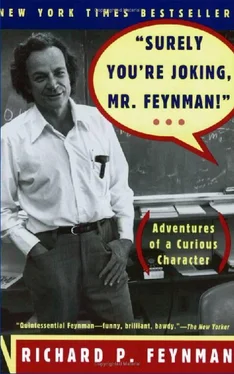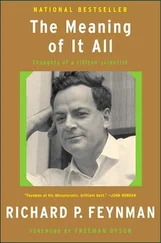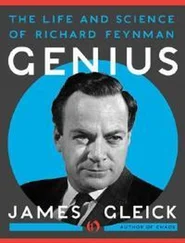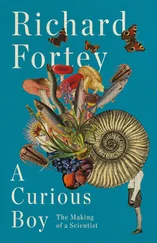But what Socrates was talking about in the Third Symposium was the relationship between Truth and Beauty!
What this Greek scholar discovers is, the students in another country learn Greek by first learning to pronounce the letters, then the words, and then sentences and paragraphs. They can recite, word for word, what Socrates said, without realizing that those Greek words actually mean something. To the student they are all artificial sounds. Nobody has ever translated them into words the students can understand.
I said, “That’s how it looks to me, when I see you teaching the kids ‘science’ here in Brazil.” (Big blast, right?)
Then I held up the elementary physics textbook they were using. “There are no experimental results mentioned anywhere in this book, except in one place where there is a ball, rolling down an inclined plane, in which it says how far the ball got after one second, two seconds, three seconds, and so on. The numbers have ‘errors’ in them—that is, if you look at them, you think you’re looking at experimental results, because the numbers are a little above, or a little below, the theoretical values. The book even talks about having to correct the experimental errors—very fine. The trouble is, when you calculate the value of the acceleration constant from these values, you get the right answer. But a ball rolling down an inclined plane, if it is actually done, has an inertia to get it to turn, and will, if you do the experiment, produce five-sevenths of the right answer, because of the extra energy needed to go into the rotation of the ball. Therefore this single example of experimental ‘results’ is obtained from a fake experiment. Nobody had rolled such a ball, or they would never have gotten those results!
“I have discovered something else,” I continued. “By flipping the pages at random, and putting my finger in and reading the sentences on that page, I can show you what’s the matter—how it’s not science, but memorizing, in every circumstance. Therefore I am brave enough to flip through the pages now, in front of this audience, to put my finger in, to read, and to show you.”
So I did it. Brrrrrrrup —I stuck my finger in, and I started to read: “Triboluminescence. Triboluminescence is the light emitted when crystals are crushed.”
I said, “And there, have you got science? No! You have only told what a word means in terms of other words. You haven’t told anything about nature—what crystals produce light when you crush them, why they produce light. Did you see any student go home and try it? He can’t.
“But if, instead, you were to write, ‘When you take a lump of sugar and crush it with a pair of pliers in the dark, you can see a bluish flash. Some other crystals do that too. Nobody knows why. The phenomenon is called “triboluminescence.”‘ Then someone will go home and try it. Then there’s an experience of nature.” I used that example to show them, but it didn’t make any difference where I would have put my finger in the book; it was like that everywhere.
Finally, I said that I couldn’t see how anyone could be educated by this self-propagating system in which people pass exams, and teach others to pass exams, but nobody knows anything. “However,” I said, “I must be wrong. There were two students in my class who did very well, and one of the physicists I know was educated entirely in Brazil. Thus, it must be possible for some people to work their way through the system, had as it is.”
Well, after I gave the talk, the head of the science education department got up and said, “Mr. Feynman has told us some things that are very hard for us to hear, but it appears to be that he really loves science, and is sincere in his criticism. Therefore, I think we should listen to him. I came here knowing we have some sickness in our system of education; what I have learned is that we have a cancer! ”—and he sat down.
That gave other people the freedom to speak out, and there was a big excitement. Everybody was getting up and making suggestions. The students got some committee together to mimeograph the lectures in advance, and they got other committees organized to do this and that.
Then something happened which was totally unexpected for me. One of the students got up and said, “I’m one of the two students whom Mr. Feynman referred to at the end of his talk. I was not educated in Brazil; I was educated in Germany, and I’ve just come to Brazil this year.”
The other student who had done well in class had a similar thing to say. And the professor I had mentioned got up and said, “I was educated here in Brazil during the war, when, fortunately, all of the professors had left the university, so I learned everything by reading alone. Therefore I was not really educated under the Brazilian system.”
I didn’t expect that. I knew the system was bad, but 100 percent—it was terrible!
Since I had gone to Brazil under a program sponsored by the United States Government, I was asked by the State Department to write a report about my experiences in Brazil, so I wrote out the essentials of the speech I had just given. I found out later through the grapevine that the reaction of somebody in the State Department was, “That shows you how dangerous it is to send somebody to Brazil who is so naive. Foolish fellow; he can only cause trouble. He didn’t understand the problems.” Quite the contrary! I think this person in the State Department was naive to think that because he saw a university with a list of courses and descriptions, that’s what it was.
Man of a Thousand Tongues
When I was in Brazil I had struggled to learn the local language, and decided to give my physics lectures in Portuguese. Soon after I came to Caltech, I was invited to a party hosted by Professor Bacher. Before I arrived at the party, Bacher told the guests, “This guy Feynman thinks he’s smart because he learned a little Portuguese, so let’s fix him good: Mrs. Smith, here (she’s completely Caucasian), grew up in China. Let’s have her greet Feynman in Chinese.”
I walk into the party innocently, and Bacher introduces me to all these people: “Mr. Feynman, this is Mr. So-and-so.”
“Pleased to meet you, Mr. Feynman.”
“And this is Mr. Such-and-such.”
“My pleasure, Mr. Feynman.”
“And this is Mrs. Smith.”
“Ai, choong, ngong jia!” she says, bowing.
This is such a surprise to me that I figure the only thing to do is to reply in the same spirit. I bow politely to her, and with complete confidence I say, “Ah ching, jong jien!”
“Oh, my God!” she exclaims, losing her own composure. “I knew this would happen—I speak Mandarin and he speaks Cantonese!”
I used to cross the United States in my automobile every summer, trying to make it to the Pacific Ocean. But, for various reasons, I would always get stuck somewhere—usually in Las Vegas.
I remember the first time, particularly, I liked it very much. Then, as now, Las Vegas made its money on the people who gamble, so the whole problem for the hotels was to get people to come there to gamble. So they had shows and dinners which were very inexpensive—almost free. You didn’t have to make any reservations for anything: you could walk in, sit down at one of the many empty tables, and enjoy the show. It was just wonderful for a man who didn’t gamble, because I was enjoying all the advantages—the rooms were inexpensive, the meals were next to nothing, the shows were good, and I liked the girls.
One day I was lying around the pool at my motel, and some guy came up and started to talk to me. I can’t remember how he got started, but his idea was that I presumably worked for a living, and it was really quite silly to do that. Look how easy it is for me,” he said. “I just hang around the pool all the time and enjoy life in Las Vegas.”
Читать дальше












